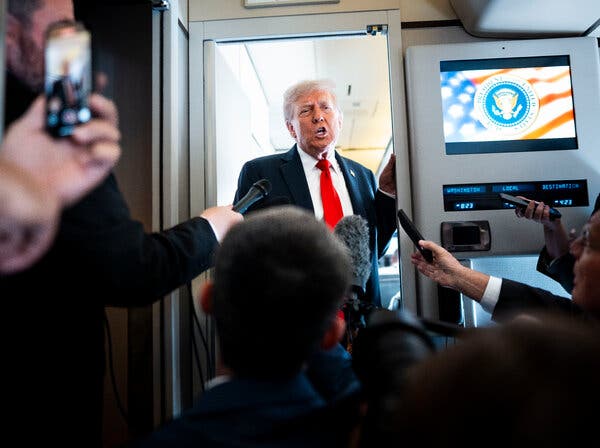After a recent summit with Russian President Vladimir Putin on March 15, 2024, former U.S. President Donald Trump spoke with Fox News host Sean Hannity, sharing insights from their meeting. Although details regarding discussions on the ongoing war in Ukraine were sparse, Trump expressed a strong personal rapport with Putin, stating, “I think the meeting was a 10.” He emphasized the importance of good relations between major nuclear powers, referring to the United States as “No. 1” and Russia as “No. 2.”
During the interview, which aired later on Fox News, Trump shifted responsibility for resolving the conflict in Ukraine to Ukrainian President Volodymyr Zelensky. “Now it is really up to President Zelensky to get it done,” he remarked, suggesting that European nations should also play a more active role in peace efforts.
Trump’s praise for Putin was notable throughout the conversation. He recalled positive comments made by the Russian leader during their discussions. “I always had a great relationship with President Putin,” he asserted, adding that they could have accomplished significant initiatives together. Trump referenced a conversation where Putin reportedly supported his claims regarding the 2020 U.S. presidential election being “rigged,” citing mail-in voting as a major factor. This assertion stands in contrast to findings from Trump’s own attorney general, who stated in 2020 that evidence of widespread fraud could not be substantiated.
The dialogue took an intriguing turn when Trump contemplated a potential three-way summit involving himself, Zelensky, and Putin but initially claimed he had not discussed it with Putin. Later in the interview, he contradicted himself, stating, “They both want me there,” indicating a willingness to participate in a future meeting.
On March 16, Zelensky announced plans to visit Washington to engage further on the conflict with Trump. Earlier in the day, he had voiced concerns about Russia’s recent military actions and expressed skepticism about Putin’s intentions to end the war. Despite these criticisms, Trump maintained that he believes Putin is eager to “solve the problem,” failing to acknowledge that the Russian leader initiated the conflict.
As the complexities of international diplomacy unfold, the dynamics between Trump and Putin, as well as the implications for Ukraine and its leadership, remain critical areas of focus. The ongoing discussions highlight the challenges and responsibilities that come with peace negotiations and international relations.







































































